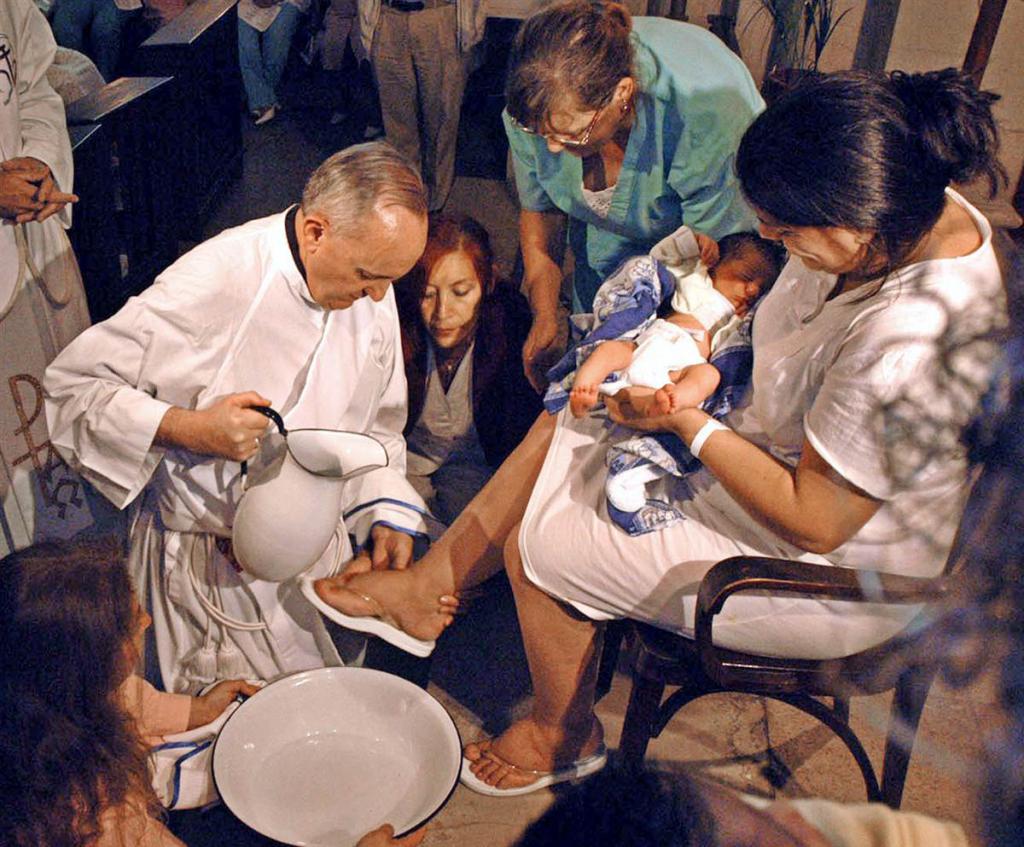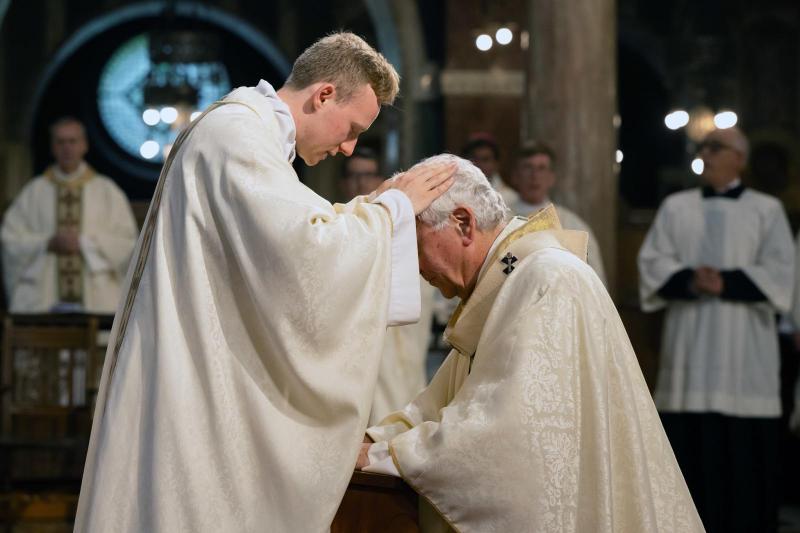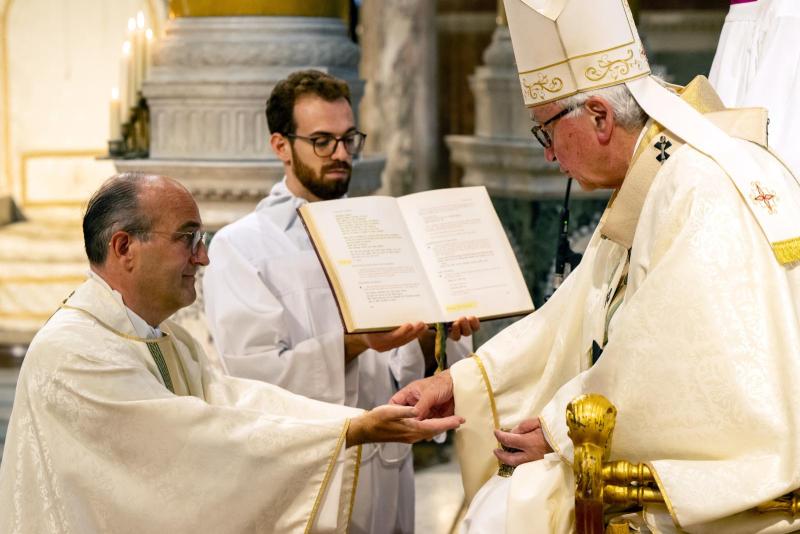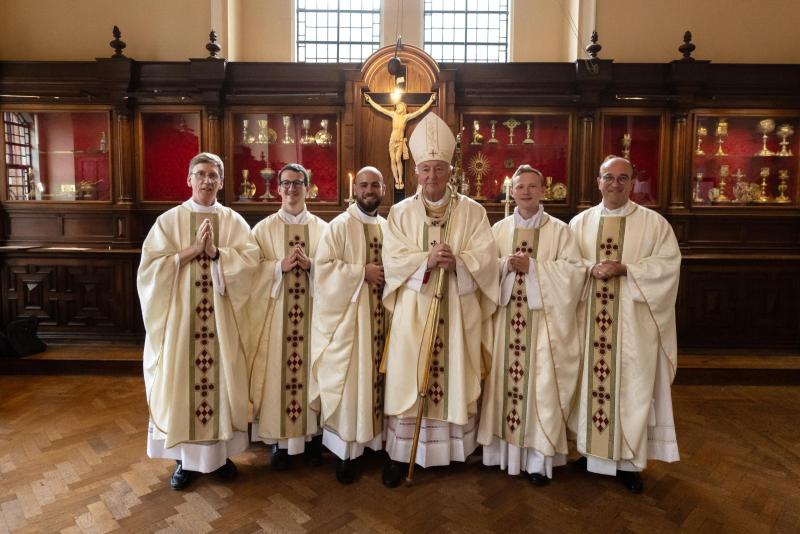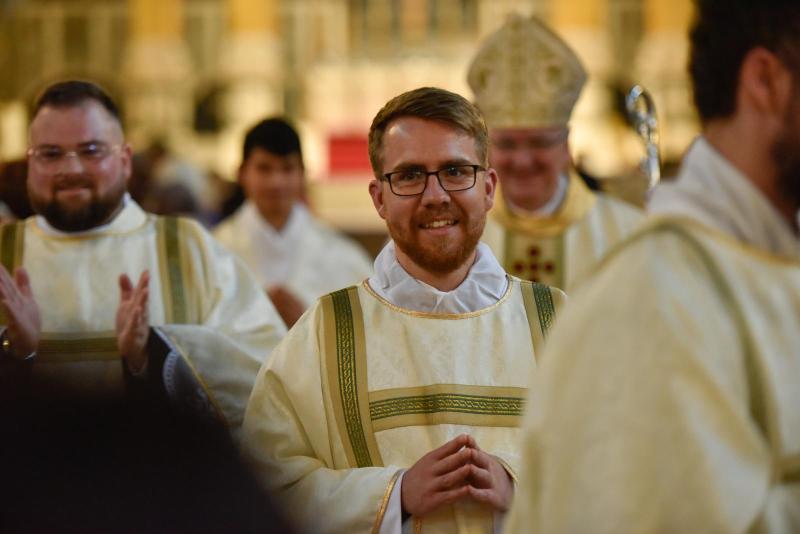The Church celebrates the fourth Sunday of Easter as Good Shepherd Sunday and as World Day of Prayer for Vocations. Pope Francis’ vision for the priesthood emerges both from what he says and the way he lives out his own priestly ministry.
A living relationship
Pope Francis has said that the touchstone of a living vocation is in the extent to which priests seek Christ in daily life. Typically, he asked Rome’s priests at the beginning of Lent: “How does your day end? With God, or television?” It took the disciples time to “become Christ” for others, so this is not automatic at ordination. The priest needs to grow in union with Christ through prayer and intimacy.
Being close to the people
The Holy Father has famously said that priests must be “shepherds living with the ‘smell of the sheep’”. To be pastors rather than administrators they need to “go out to meet the people,” especially the lost sheep. When so many priests and bishops are enslaved by administrative tasks, Pope Francis summons them to direct themselves toward the Church’s evangelical mission.
Authority linked to service
This link was emphasised in the Pope’s Inaugural Mass, especially to the care and protection of the poorest, weakest and most easily forgotten. Francis, known as the "slum bishop" in Argentina, sees reaching out to those on the margins of society as "the most concrete way of imitating Jesus". Soon after becoming Pope he visited the island of Lampedusa to pay tribute to immigrants who have died trying to get to Europe.
Be Merciful
Ten newly-ordained priests were given this as the most important advice he could offer. His motto Miserando Atque Eligendo (“Chosen Through the Eyes of Mercy”) highlights that his own vocation was born in an experience of God’s mercy, when as a 16-year-old boy he went to confession on the feast of the St. Matthew the Evangelist. The reminder that God never tires of forgiving us is a clear call to priests never to tire in dispensing mercy, both sacramentally and in daily life.
Simplicity of life
Priests who give in to vanity and worldly ambition have been repeatedly criticised. As Cardinal in Buenos Aires, Francis’ example of living in a small apartment rather than an episcopal palace, and of using public transport was a clear challenge to his fellow priests to examine the sincerity of their own spiritual poverty.
Personal integrity and humility
By paying his pre-Conclave bill after his election the Pope made not a nice gesture but a real sign that there is no exemption from the demands of ordinary accountability. When there is abuse of power or careerism, then priests “become wolves not shepherds”.
The priest as a source of blessing
The anointing received at ordination is not meant just for the priest – it is to flow through him to those whom he serves. As Pope Francis said at his first Chrism Mass: “A good priest can be recognised by the way his people are anointed... when our people are anointed with the oil of gladness, it is obvious: for example, when they leave Mass looking as if they have heard good news.” So the people may “feel that the fragrance of the Anointed One, Christ, has come to them through the priest” sharing with his flock and helping them in the reality of their everyday lives.
